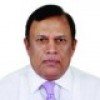According to UN statistics, youth below the age of 30 years constitute 64% of Pakistan’s total population. In 2018, almost 37.86% were below 14 years old, and 22.5 million, eligible to be registered on the voters’ list, have cast their votes for the 2024 elections. The whole demographic, based on age, has changed the political landscape of this country. Political parties and their leaders need to understand this and change their priorities, narratives and archaic mindsets, which they have acquired and adopted over time. This age group shuns and detests the idea of political dynasties and the mindset that they are part of ruling families. A large majority of them are not willing to be exploited in the name of religion. In a democracy, there is no space for such a mindset.
Optics matters a lot in the course of interaction between politicians and the electorate. Constituency politics demand access of the people with their elected representatives. Political leaders, while in public, must be dressed modestly and there should be no display of branded watches, expensive hand bags etc. For our female politicians, the role model should be Madr-e-Millat Fatima Jinnah, whose choice of dress was graceful and simple. Similarly, ZAB when addressing any public meeting, would carefully choose his dress to build a bond with his audience. We must remember that Fatima Jinnah was a very educated lady. She was the first Muslim female dentist in 1923. She played a pivotal role in the political struggle for creation of Pakistan, led by her brother MAJ. She stood up like a rock in her struggle to restore Pakistan to Jinnah’s vision of a modern democratic welfare state in 1965. While Quaid was a man of taste, who owned luxurious houses, his stress upon austerity, on assuming the role of GG Pakistan, is an example which none has followed thereafter. On 8 February, majority of new voters came out in large numbers to express their resentment. It was an anti-establishment vote.
The age based demographic changes require all stakeholders, including the Establishment to understand this. Those at helm must adapt to changed political demographics and tune themselves to aspirations of the youth; otherwise they will lose their political space. Social media and the electronic media have played a part in educating this age group, who unlike their parents, are no longer willing to be ignored, nor do they accept validity of political dynasties and their arrogance. With passage of time, they will become more demanding. If anything, the 2024 election results reflect the anger of the youth and their expectations for change to come and be seen to deliver.
This anger is augmented further when they witness an oasis of prosperity with subsidized gated housing societies for the paid and affluent elite of this country, several golf courses, commercial plazas, luxurious marriage halls etc., surrounded by a sea of millions living in utter poverty, deprived even clean drinking water. Their frustration becomes more acute when these are built on lands, where their families once tilled for decades. This land was forcibly acquired and taken away from them, for the benefit of the land mafia, in nexus with powerful quarters of this country. Subsidized schools and hospitals which offered quality education and health facilities have either been shut down or outsourced to private groups, who run them as commercial ventures. These young men, who tilled the land with their elders, have been denied their livelihood and joined ranks of unemployed. This situation is very dangerous and needs to be curtailed forthwith.
No system of governance, whether capitalist, socialist or religious, can survive without a workable and effective welfare system, a functioning judiciary, catering for the most deprived sections of society. Failure to do so can result in a backlash. The signs of discontent are visible and before the anger builds up and the volcano erupts, the political and paid elite must rise up and make amends. We must all realize that the existence of Pakistan with a viable economy, a functioning judiciary and developed human resources is vital for national security. We have no other option except this. Those who have any doubts must look at the fate of Muslims and Christians living in Modi’s India, who are subjected to endless miseries and torture. They are denied even the right to practice their faiths and beliefs. The sufferings of Palestinians living in Gaza and West Bank must awaken us.
Pakistan with all its shortcomings, most of them of our own misdeeds, is the only home for 99.5% of its citizens who have chosen to live and die here. This country needs to adopt the vision of Quaid-e-Azam in letter and spirit. All the State institutions must work within their constitutionally defined corridors. No individual, who has held important sensitive constitutional public offices, should be allowed to hold foreign nationality post-retirement, especially of countries where on oath they renounce their loyalty to Pakistan. People with split loyalties and visible conflicts of interest should have no role, either paid or elected, to decide the fate of this country, whose future they are not wedded to. This country has suffered enough at the hands of such people. Pakistan must survive and flourish as a modern democratic welfare state, envisioned by MAJ.
—The writer is contributing columnist, based in Lahore.
Email: [email protected]
Political landscape and demographic changes
 33
33
 0
21.02.2024
0
21.02.2024
According to UN statistics, youth below the age of 30 years constitute 64% of Pakistan’s total population. In 2018, almost 37.86% were below 14 years old, and 22.5 million, eligible to be registered on the voters’ list, have cast their votes for the 2024 elections. The whole demographic, based on age, has changed the political landscape of this country. Political parties and their leaders need to understand this and change their priorities, narratives and archaic mindsets, which they have acquired and adopted over time. This age group shuns and detests the idea of political dynasties and the mindset that they are part of ruling families. A large majority of them are not willing to be exploited in the name of religion. In a democracy, there is no space for such a mindset.
Optics matters a lot in the course of interaction between politicians and the electorate. Constituency politics demand access of the people with their elected representatives. Political leaders, while in public, must be dressed modestly and there should be no display of branded watches, expensive hand bags etc. For our female politicians, the role model should be Madr-e-Millat Fatima Jinnah, whose choice of dress was graceful and simple. Similarly, ZAB when addressing any public meeting, would carefully choose his dress to build a bond with his audience. We must remember that........
© Pakistan Observer
 visit website
visit website






















 Toi Staff
Toi Staff Gideon Levy
Gideon Levy Mohamad Elmasry
Mohamad Elmasry Belen Fernandez
Belen Fernandez Brahma Chellaney
Brahma Chellaney Petra Lesjak Tušek
Petra Lesjak Tušek Tarik Cyril Amar
Tarik Cyril Amar Cheryl Levi
Cheryl Levi
